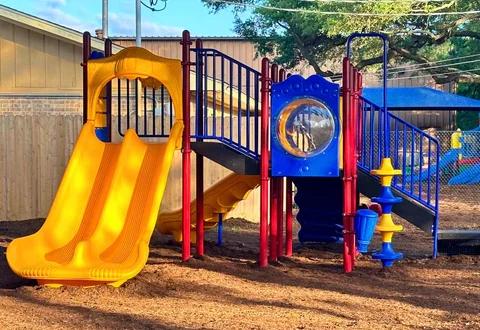The following is a brief introduction to the topic:
Early childhood development is crucial to a child’s growth. Quality child care, whether provided at home or by a professional, lays the groundwork for emotional, cognitive, and physical development. Parents, educators, and caregivers must all work together to create a stimulating, safe, and loving environment for young kids.
1. Why Quality Childcare Matters
Early childhood is crucial. According to research, 90% of the brain’s development occurs before age five. Children’s safety is not the only thing that quality child care ensures. It also helps to shape their learning abilities, language skills, social skills and emotional well-being.
2. Good Child Care Characteristics
Consider the following characteristics to identify a high-quality childcare environment:
- Cleanliness and Safety: Keep the environment clean, organized, and childproof.
- Qualified Caregivers: All caregivers should have training in early childhood education, first aid and other relevant areas.
- Low child-to-adult ratio: Smaller group sizes allow for better supervision and individual attention.
- Positive interactions: Parents should be patient and warm.
- Educational Activities: Children should learn through music, stories, play and other activities.
3. Child Care Options
Parents can choose between several different types of childcare, depending on their circumstances and preferences:
- Home-Based Care: This is care provided by a family member or nanny in the home of a child.
- Family Child Care Homes A caregiver takes care of a small number of children at their home.
- Child Care Centers: These are licensed facilities that offer structured programs with multiple caregivers.
- Preschools: These programs are geared towards early education and the preparation of children for school.
4. Tips on Choosing the Best Child Care
- Visit the facility and observe: Spend some time there to see how caregivers deal with children.
- Ask questions: Find out about the caregiver’s qualifications, routines and policies.
- References Talk to other parents about the product or read reviews.
- Trust your instincts: Keep looking if something feels wrong.
5. Parents’ Role in Childcare
Parents are still the primary influence on their children, even when they are being cared for by professionals. Keep in touch by:
- Communication with caregivers is important.
- Create a consistent routine between child care and home.
- Spending time with your children daily is important.
Conclusion
One of the biggest decisions that parents will make is to choose the best child care for their children. Children are safer in an environment that is stimulating and nurturing, and it also helps them develop. Children who are given the proper care will gain the skills, confidence, and love that they need to become successful, happy individuals.





